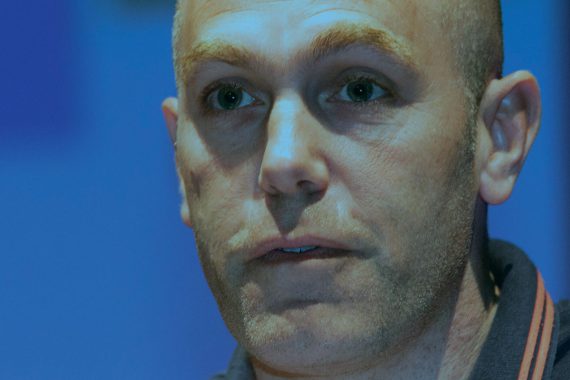GPs advised to stick to ‘safe working guidance’ while BMA considers industrial action

GPs should not work above limits set out in safe working guidance while the BMA considers next steps following the contract imposition by NHS England, GP Committee leaders have advised.
GPC officials yesterday told GPs they may have to come to them with an industrial action ballot in order to gain ‘leverage’ in talks with Government.
However, in the meantime, they added, practices ‘have to protect themselves from burnout’.
In order to do so, GPC acting chair Dr Kieran Sharrock advised GPs to ‘stick to safe working guidance’.
During a webinar yesterday afternoon, GPs were also advised to:
- Look at the monetary value of enhanced services including PCN DES, with an opt-out window in April 2023
- Work with LMCs and ICBs to develop OPEL or GPAS and escalation plans
- Consider GPCE safe working guidance
Under the GPCE safe working guidance, practices ‘must provide enough appointments to meet the reasonable need of their patients’ but this ‘must be done in a way that is safe for patients and GPs.’
The GPC said that remote consulting and triage are ‘safe and effective ways of delivering care’ and that utilising these methods may allow practices to provide patient appointments more flexibly, direct patients to the most appropriate provider of care and prioritise care for those most in need.
The guidance ‘strongly’ recommends practices take immediate measures to move to 15 minute appointments.
By extending appointments to 15 minutes, practices can reduce the need for repeated consultations with patients while still preserving quality of care and patient satisfaction, the BMA said.
This can be done without increasing the total time GPs spend consulting in their day, but it could mean a reduction in the absolute number of appointments per session but it will mean remaining safe for patients and doctors.
Current BMA standards for a session of GP care is four hours 10 minutes and no more than 3 hours of this should be spent in consultation with patients.
Extending sessions beyond this time ‘risks harm to patients and clinicians’, the BMA warned.
For salaried GPs who are regularly exceeding their contracted hours, a reduction in appointments is one possible intervention, whether these be face to face, telephone calls, visits, or e consults.
In the webinar, GPC officials also told GPs they were having talks with NHS Digital about better recording of workload that is not related to direct appointment data. They are also continuing to push Government on access targets, and will produce new guidance on the new role of medical examiners.
On pay declaration, they said they could not advise GPs go against the guidance as it would be contractual, and they are not allowed to advise GPs to take industrial action without a ballot.
NHS England is asking the highest-earning GPs to declare their income by 30 April – including partners, salaried and locum GPs.
The commissioner published guidance on the pay transparency requirement last week, after consulting with the BMA’s GP Committee and the Association of Independent Specialist Medical Accountants (AISMA) late last year.
In the new guidance, NHS England set out who is required to make a ‘pay transparency self-declaration’ and explains the process of making the self-declaration and how the data collected will be used.
During the webinar, GPC deputy chair Dr David Wrigley said the BMA has repeatedly said that the pay declaration is ‘no benefit for GPs,’ and that there is a risk of them reducing their hours or retiring early because of it.
He added: ‘It will be part of the contract and it will be a contract requirement. We have taken senior legal advice on this but, because the Government is the Government, they are allowed to do that. We will continue to push on it.’
The webinar also updated GPs on the potential options for industrial action, including closing surgeries fully for a day, closure of patient lists, establishing lengthy GP consultation patient waiting lists, ‘severe’ capping of daily consultations per GPs to safe/sustainable levels and/or submitting undated contract resignations.
Earlier this week, the union gave the Government a list of changes that must be made – ‘at a minimum’ – to the imposed 2023/24 contract to avoid a threat of industrial action by GPs.
Pulse October survey
Take our July 2025 survey to potentially win £1.000 worth of tokens

Related Articles
READERS' COMMENTS [1]
Please note, only GPs are permitted to add comments to articles











How can they claim it is safer to only see 24 patients a day? What happens to the rest who cannot see their GP? For decades now we GPs have seen far more than this and its not unusual for me to see over 60 in a day. What has changed is the NHSE insistence on hugely detailed defensive notes. They want each consultation to be recorded as if it is going to be a legal case. Then when something does go wrong they judge us on guidelines which are like a medical text book of huge detail. We cannot possibly deal with the public demand when so much detail is needed.
On the positive side since covid, a lot more work is done by phone consultation and this is very efficient. Having started work in 1985 I don’t personally see any uptick in patient demand. What I do notice is a HUGE rise in bureaucracy, box ticking and unproductive chasing down of qof like data. This is the preventative icing on the cake that is well worth while if the cake is intact but at the moment the cake is rotting and putting icing on is an inappropriate action. We need to concentrate solely on getting the basics adequately managed. This would help rescue general practice and restore it to its traditional strength and popularity